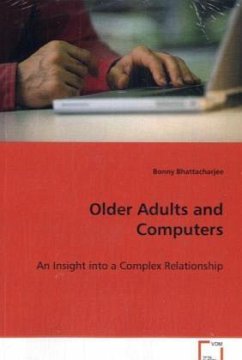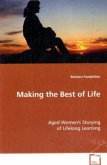The book focuses on older adult users of computer.The group is noteworthy in today's society due to itsgrowing numbers and burgeoning economic strength.Literature paints the senior citizens as computerilliterates. However, the author believes thatdemographic factors like users' age, income,education, experience, gender, disability andcomputer ownership status can considerably thwart oralternatively, enhance older adults' possibilities tobond with computers via the phenomenon ofcomputer-anxiety. The author states that limitationsinherent in computer systems' features, coupled withphysiological infirmities due to advancing age,prevent the seniors from interacting with computers.The author establishes that the presence oralternatively absence of the above variables have thepotential of notching up or lowering computer-anxietylevels among older computer users, thereby affectingtheir possibilities of successfully working withcomputers. The book also offers a comprehensive viewof almost all the factors known to positively ornegatively influence older users' interaction withcomputers. This is a must read for researchers andstudents studying gerontology.
Bitte wählen Sie Ihr Anliegen aus.
Rechnungen
Retourenschein anfordern
Bestellstatus
Storno








